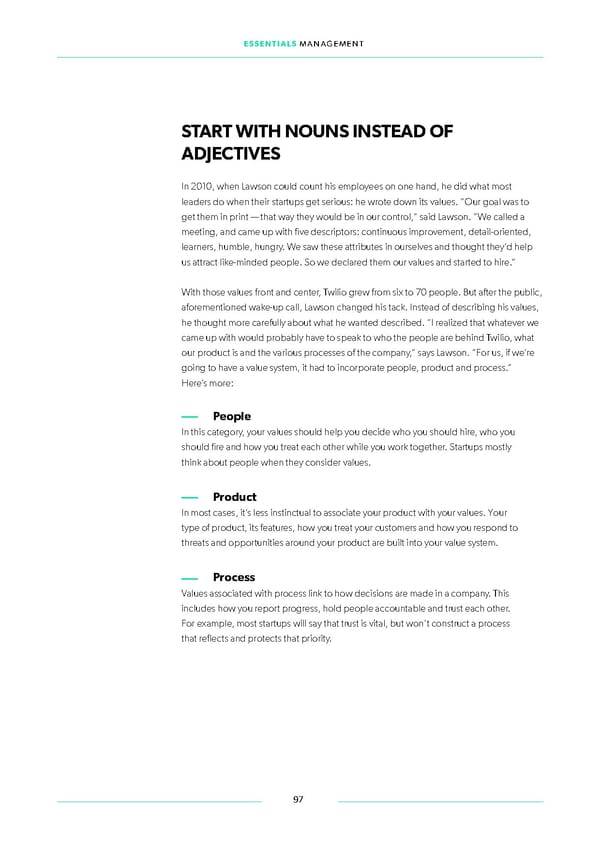ESSENTIALS MANAGEMENT START WITH NOUNS INSTEAD OF ADJECTIVES In 2010, when Lawson could count his employees on one hand, he did what most leaders do when their startups get serious: he wrote down its values. “Our goal was to get them in print — that way they would be in our control,” said Lawson. “We called a meeting, and came up with ifve descriptors: continuous improvement, detail-oriented, learners, humble, hungry. We saw these attributes in ourselves and thought they’d help us attract like-minded people. So we declared them our values and started to hire.” With those values front and center, Twilio grew from six to 70 people. But atfer the public, aforementioned wake-up call, Lawson changed his tack. Instead of describing his values, he thought more carefully about what he wanted described. “I realized that whatever we came up with would probably have to speak to who the people are behind Twilio, what our product is and the various processes of the company,” says Lawson. “For us, if we’re going to have a value system, it had to incorporate people, product and process.” Here’s more: People In this category, your values should help you decide who you should hire, who you should ifre and how you treat each other while you work together. Startups mostly think about people when they consider values. Product In most cases, it’s less instinctual to associate your product with your values. Your type of product, its features, how you treat your customers and how you respond to threats and opportunities around your product are built into your value system. Process Values associated with process link to how decisions are made in a company. This includes how you report progress, hold people accountable and trust each other. For example, most startups will say that trust is vital, but won’t construct a process that relfects and protects that priority. 97
 Essentials Management First Round Capital Page 96 Page 98
Essentials Management First Round Capital Page 96 Page 98